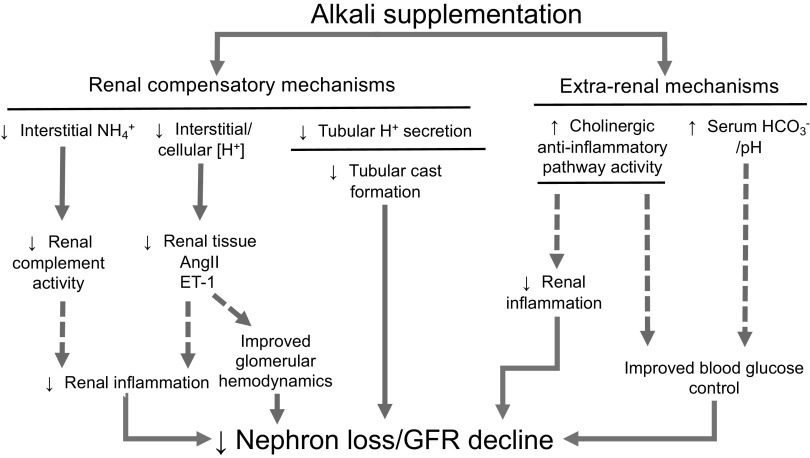Fig. 2.
Proposed renoprotective mechanisms of alkali in chronic kidney disease (CKD). Several potential mechanisms have been proposed that underlie the beneficial effect of alkali supplementation in slowing the decline in glomerular filtration rate (GFR) and ultimately the progression of CKD. Solid lines represent established phenomena; dotted lines represent areas of ongoing research. Several of these mechanisms have been proposed to be mediated through renal compensatory responses to alkali, including 1) decreasing interstitial ammonium levels that lead to decreases in complement activation; 2) decreasing interstitial acidosis, which decreases local production of endothelin-1 (ET-1) and angiotensin II (ANG II); or 3) decreasing tubular H+ secretion, which can limit tubular cast formation. It is possible that other, extrarenal mechanisms also mediate a protective effect, either through 1) activation of the cholinergic anti-inflammatory pathway, which can decrease renal inflammation, or 2) correction of acidosis that can lead to enhanced blood glucose control.

